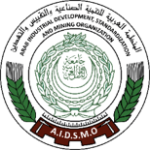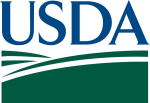♥ The warmest heartfelt embrace to our SPONSORS, whose generosity and gracious support make our initiatives possible, for the collective benefit of the food regulatory science community – THANK YOU ♥
If you like what you see, do not hesitate and reserve this spot for your organization’s logo – show your support and become a sponsor today!
INITIATIVE 24-02 • SYNOPSIS
Arab Food Consumption Data Initiative • Supporting Representative Exposure Assessments in the Arab Region
![]() English | Français | العربي
English | Français | العربي
Background
Risk assessments estimate the likelihood and severity of an adverse health effect occurring from exposure to a hazard.
A risk assessment can be used to examine substances deliberately added to food (e.g. food additives, processing aids, agricultural or veterinary chemicals) and substances that occur inadvertently in food (e.g. environmental contaminants, naturally occurring toxins or pathogenic microorganisms), as well as the impact of new technologies.
In this context, risk is a function of both the hazard and the level of exposure to that hazard.
A food risk assessment therefore consists of an assessment of the hazard and an assessment of exposure which together enable characterization of the risk.
It is important that the outputs of the risk assessment provide information in a way that facilitates risk management decision-making. The results of the risk assessment are only one of a number of considerations informing risk management, others being public health policy guidance, consumer behaviors and economic, social and other regulatory policy requirements.
Dietary exposure assessments are a core part of the scientific risk assessment process to characterize potential risks from chemicals in food for a range of purposes, including:
- Setting or amending food standards.
- Identifying the impacts of an international or regional standard on a given jurisdiction, its consumers and its food production sector.
- Estimating the public health effect of an existing chemical in the light of new information, such as revised health-based guidance values or new concerns about an established product.
- On-going monitoring and surveillance.
- The development of food information tools and labelling.
- The development of food consumption advice for consumers.
Dietary Exposure Assessment requires access to food occurrence data related to the hazard and to food consumption information. The latter data is gathered through various sources, including the development and implementation of 24-hour recall surveys enabling to record the food consumption patterns. Surrogate data may also be accessed through existing information generated by other statistical surveys and activities, such as the household budget surveys, which tend to be implemented regularly in most countries.
As much as food consumption data are crucial to support more representative exposure assessments, there is a general understanding that collecting such data is expensive and unaffordable for most countries, leaving these jurisdictions without access to this valuable resource. This is certainly the case in some Arab food regulatory jurisdictions.
The Proposed Arab Food Standards Program: What will Change?
Several initiatives carried out in the Arab region have resulted in the development of food consumption data, to address nutrition and public health goals defined for the region. The availability of this data to be used by food regulators and other food stakeholders such as industry would be better enabled through the creation of opportunities of collaboration between the networks of experts involved in the relevant fields. This is one of the objectives pursued by the Arab Food Consumption Data Initiative.
This initiative aims to:
- Create reliable repositories for food consumption data representative of the Arab region, including country-related data, to be used by food regulatory authorities and their stakeholders for exposure assessment purposes.
- Develop agreed-upon methodologies of food consumption data collection that can be used consistently by Arab food risk assessment authorities to implement food consumption surveys in their respective jurisdictions.
- Develop and maintain the set of enabling tools, including Information and Communication Technologies (ICT) that support the consistent deployment of food consumption data collection in the Arab region, e.g., applications of data collection, applications for data analysis, etc.
- Develop training material and capacity building programs to disseminate knowledge and support the adoption of consistent / harmonized methodologies and tools supporting food consumption data collection in the Arab region.
- Develop and maintain a network of experts that support the sustainable management of food consumption data, to be used for risk assessment in the Arab region.
This initiative is called to feed into a larger project: The Arab Food Standards Initiative, which requires the development of foundational data sets (occurrence data, consumption data, trade data such rejection rates etc..) to support the development of proposals of Arab standards that are anchored in risk assessment, in data and in evidence.
This initiative will also contribute to increasing the ability of food industry actors to access the data needed to develop submissions to Arab food regulators for applications requiring pre-market approvals in many jurisdictions such as food additives or Health Claims.
What is Sought from Contributors
This Program is implemented jointly by the Global Food Regulatory Science Society (GFoRSS) in Collaboration with the Platform of Food Risk Analysis and Regulatory Excellence of Laval University and the Institute of Nutrition and Functional Foods (INAF).
Projects will be managed with a complete transparency as to the way funds are used, including a comprehensive reporting on planning of the various milestones and reporting.
Contributions to this initiative can be made in one of two ways:
- To GFoRSS by submitting the Sponsorship form found here: https://gforss.org/initiatives/24-02/#form.
- To PARERA via the following link: https://www.dprd.ulaval.ca/donner/fonds/0645/.
MEETINGS
Initiative 24-02: Arab Food Consumption Data Initiative • Supporting Representative Exposure Assessments in the Arab Region
*please be advised that all documentation is presented in PDF format, unless otherwise noted.
First Expert Meeting of the Arab Food Consumption Data Network
8:00-11:30 Qatar Time • 23 February 2024 • Doha, State of Qatar
1ST EXPERT MEETING • VIDEO HIGHLIGHTS
GFoRSS SPONSORSHIP FORM
Opportunities may be limited, secure your investment today!







